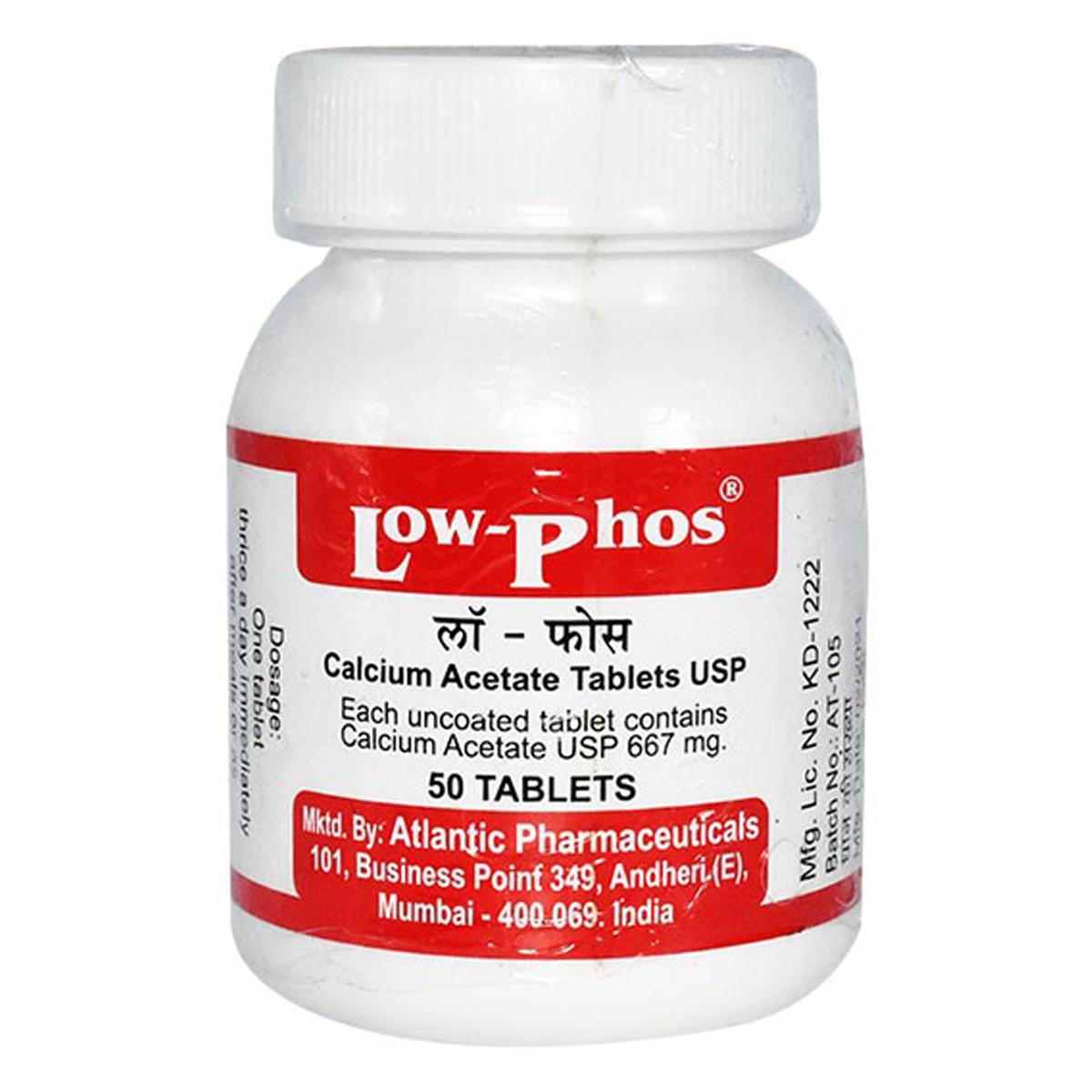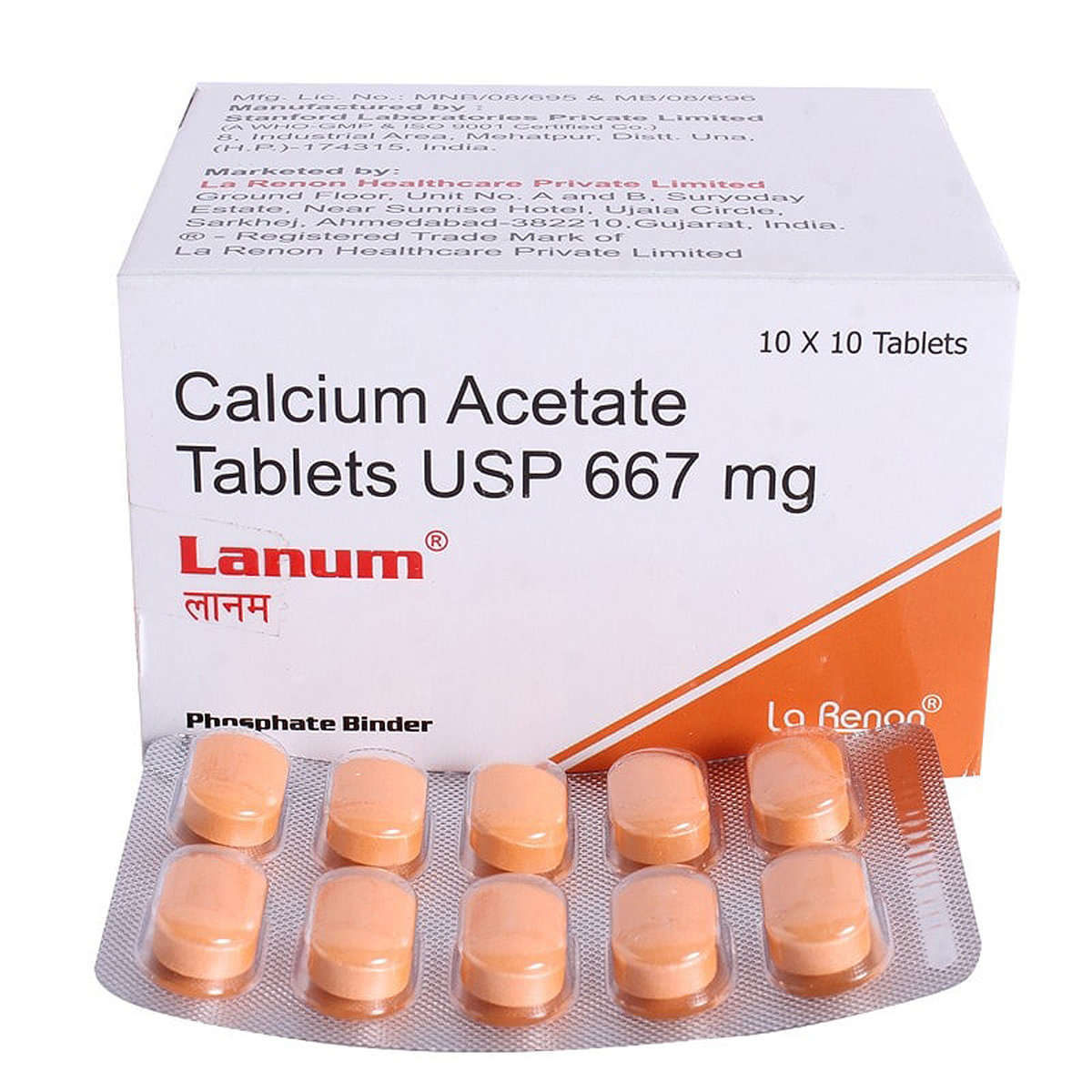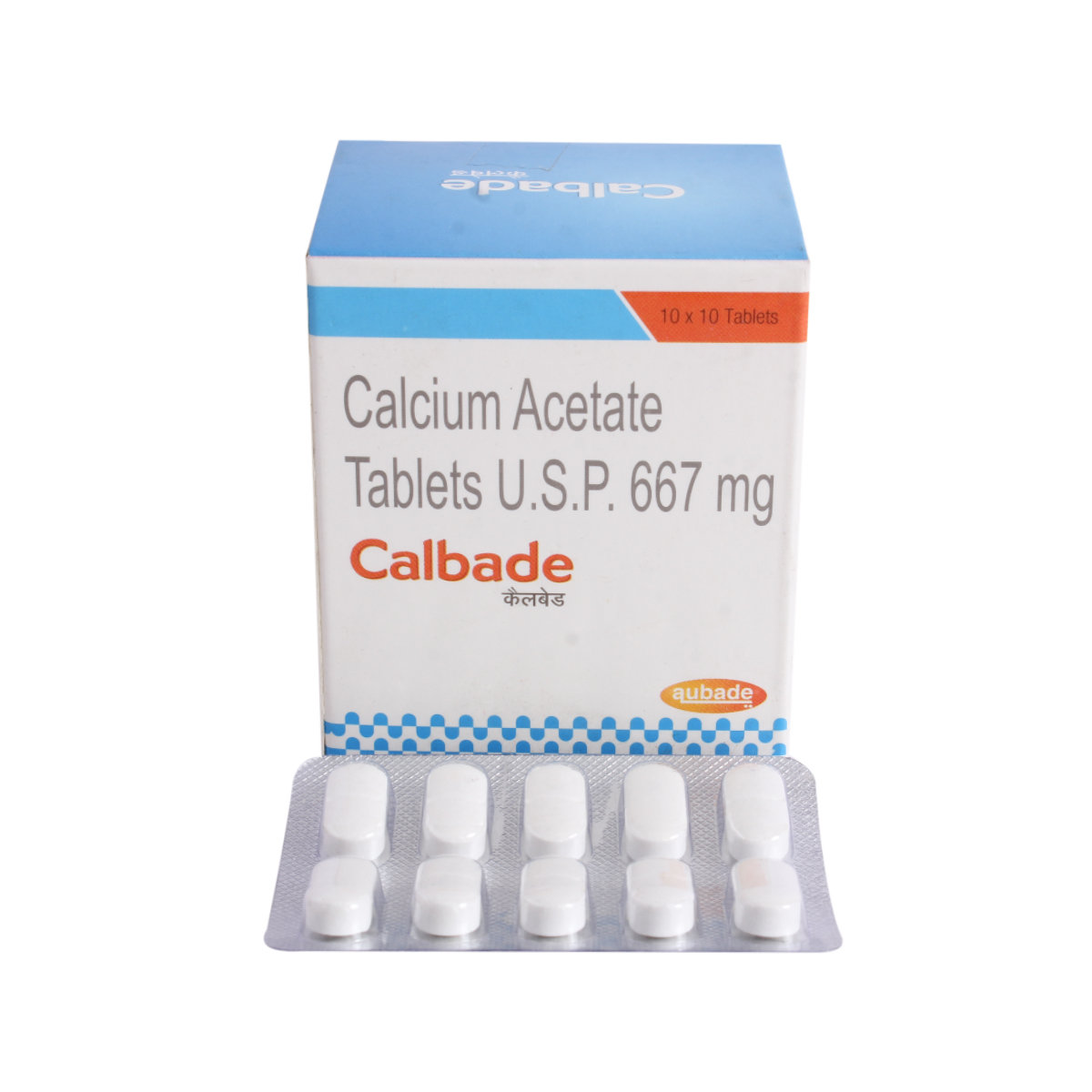Calcium Acetate
About Calcium Acetate
Calcium Acetate belongs to the class of medicines known as phosphate binders. It is used to control high blood levels of phosphorus in people with kidney disease who are on dialysis (medical treatment to clean the blood when the kidneys are not working properly). High phosphorus, also called hyperphosphatemia, means you have extra phosphorus in your blood.
Calcium Acetate contains calcium acetate, which works by binding phosphorus that you get from foods in your diet and prevents it from being absorbed into your bloodstream.
Use Calcium Acetate as advised by your doctor. You may experience nausea (feeling sick) or vomiting (being sick), constipation and diarrhoea. Most of these side effects do not require medical attention and gradually resolve over time. However, if the side effects persist, contact your doctor.
Before taking Calcium Acetate, let your doctor know if you are allergic to any ingredient of it. Inform your doctor before taking Calcium Acetate if you are pregnant, planning to become pregnant, or breastfeeding if you have lactose intolerance, have high levels of calcium in your blood or urine, or have low levels of phosphate in your blood. It is recommended not to consume alcohol while on treatment with this medicine. Inform your doctor about your medical history and other medications you are currently taking to rule out any potential negative effects.
Uses of Calcium Acetate
Medicinal Benefits
Calcium Acetate belongs to the class of medicines known as phosphate binders. It contains calcium acetate. It is commonly used to treat kidney failure in individuals undergoing regular haemodialysis or continuous ambulatory peritoneal dialysis (CAPD). In kidney failure, the phosphate levels in the blood can be high. Calcium Acetate controls the phosphate levels by removing phosphate from the food in your stomach before it enters the bloodstream. Thus, it helps to prevent the high phosphate levels in the stream.
Directions for Use
Storage
Side Effects of Calcium Acetate
- Nausea (feeling sick)
- Vomiting (being sick)
- Constipation
- Diarrhoea
- Rash
Drug Warnings
Before taking the Calcium Acetate, inform your doctor if you are allergic to any of its ingredients. If you are pregnant, planning to become pregnant, or breastfeeding, or if you have high levels of calcium in your blood or urine or low levels of phosphate in your blood. Long-term high calcium levels in your blood may lead to a build-up of calcium in your blood vessels or soft tissues. Your blood calcium levels will be checked on a regular basis by your doctor. If your levels are too high, your dose will be lowered, or your therapy will be stopped immediately. Other medications, especially antibiotics (such as norfloxacin, ciprofloxacin, or tetracyclines), diuretics (such as thiazides), and bisphosphonates (used to treat bone problems), should not be taken with Calcium Acetate unless prescribed by a doctor.
Drug Interactions
Drug-Drug Interactions: Calcium Acetate may interact with antibiotics (e.g. norfloxacin, ciprofloxacin), diuretics (e.g. hydrochlorothiazide, chlorthalidone), and bisphosphonates or medicines used to treat bone problems (e.g. risedronate, alendronate).
Drug-Food Interactions: Avoid the consumption of high-phosphorus foods.
Drug-Disease Interactions: Calcium Acetate may interact with disease conditions, including Phosphate or Calcium Imbalance, Arrhythmias, Malabsorption Syndrome, and renal dysfunction.
Drug-Drug Interactions Checker List:
Safety Advice

Alcohol
cautionAvoid the consumption of alcohol as it may cause some side effects and make Calcium Acetate less effective.

Pregnancy
cautionCalcium Acetate should not be used in pregnancy unless clearly necessary. So, inform your doctor if you are pregnant or suspect pregnancy. Your doctor will weigh the benefits and potential risks before prescribing Calcium Acetate.

Breast Feeding
cautionCalcium Acetate should not be used in nursing mothers unless clearly necessary. Inform your doctor if you are breastfeeding. Your doctor will weigh the benefits and potential risks before prescribing Calcium Acetate.

Driving
not applicableCalcium Acetate does not affect your ability to drive or operate machinery.

Liver
cautionIf you have liver problems, inform your doctor before taking Calcium Acetate. Your doctor may adjust the dose of this medicine based on your condition.

Kidney
cautionIf you have a pre-existing or a history of kidney condition, inform your doctor before taking Calcium Acetate. Your doctor may adjust the dose of this medicine based on your condition.

Children
consult your doctorSafety and effectiveness in pediatric patients have not been established. Please consult your doctor.
Habit Forming
Diet & Lifestyle Advise
- Maintain a well-balanced and healthy diet.
- Keep your weight under control with a BMI of 19.5-24.9
- Eat low-phosphorus foods such as sourdough bread, corn or rice cereals, cream of wheat, unsalted popcorn and some light-coloured sodas & lemonade.
- Avoid high-phosphorus foods, including bran cereals, oatmeal, nuts, sunflower seeds, whole-grain bread and dark-coloured colas.
- Limit or avoid alcohol consumption.
- Quitting smoking is the best strategy to lower the risk of illness.
Special Advise
To rule out the possibility of electrolyte imbalance, electrolyte levels should be monitored on a regular basis.
Patients Concern
Disease/Condition Glossary
High phosphorus or Hyperphosphatemia: High phosphorus, also called hyperphosphatemia, means you have extra phosphorus in your blood. High phosphorus is often a sign of kidney damage. High phosphorus often does not cause symptoms itself. However, excess phosphorus in your blood can remove calcium from your bones and other body parts, resulting in low calcium (hypocalcemia). Low calcium causes symptoms such as muscle cramps, bone and joint discomfort, weak bones, and itchy skin or rash.
FAQs
Calcium Acetate controls the phosphate levels by removing phosphate from the food in your stomach before it gets into the bloodstream. Thus, it helps to prevent the high levels of phosphate in the bloodstream.
High phosphorus often does not cause symptoms itself. However, excess phosphorus in your blood can remove calcium from your bones and other body parts, resulting in low calcium (hypocalcemia). Low calcium causes symptoms such as muscle cramps, bone and joint discomfort, weak bones, and itchy skin or rash.
It is not recommended for use if you are allergic to any components present in Calcium Acetate, if you have high levels of calcium in your blood or urine, or if you have low levels of phosphate in your blood.
Doctors will test your blood phosphate level to see if you have excess phosphorus. If your phosphate level is higher than 4.5 mg/dL, your doctor may order additional tests to rule out kidney disease.








